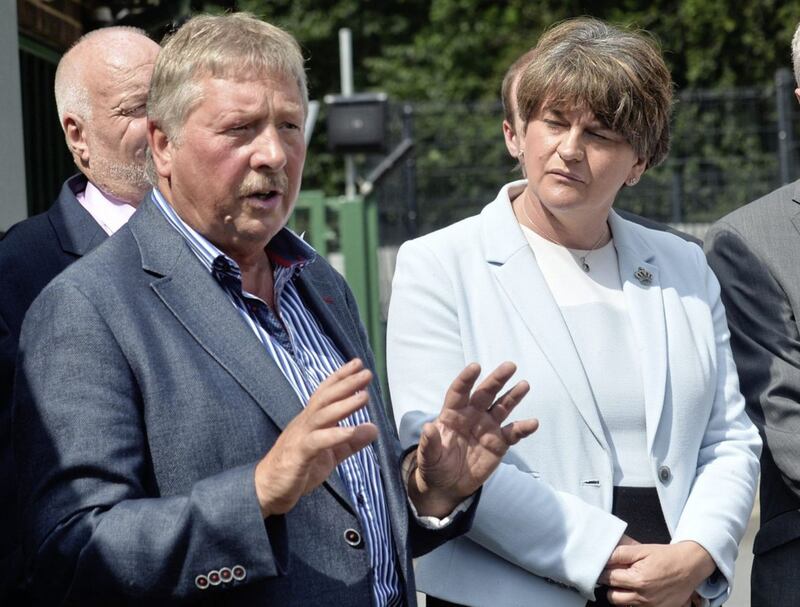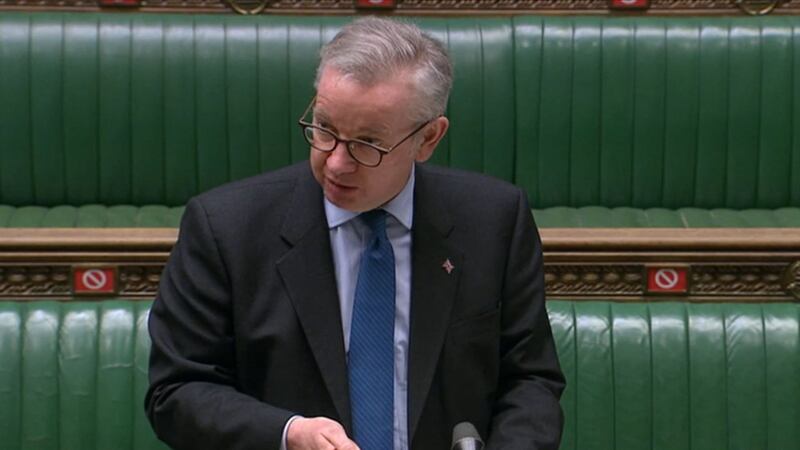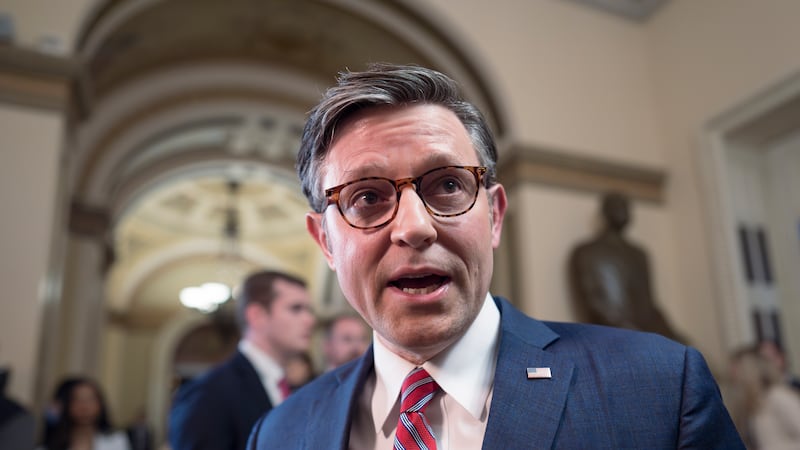British Cabinet Office minister Michael Gove said there will be no additional requirements placed on Northern Ireland businesses following the last-minute deal on how to implement the most contentious issues around the Northern Ireland Protocol on Brexit.
Outlining details of the agreement reached with the EU on how the NI part of the original withdrawal deal, known as the Protocol, will work, Mr Gove said that supermarkets will be given a "grace period" to ensure food supplies from Great Britain to Northern Ireland do not face disruption from 1 January.
This will give supermarkets time to change their systems to deal with new Brexit checks required by the EU, as part of the agreement reached between the UK and EU on how the new Irish Sea border will operate.
He said: “This deal would keep goods flowing between Great Britain and Northern Ireland in January, and indeed provide some necessary additional flexibilities.
“It protects Northern Ireland’s supermarket supplies. We heard throughout the year that traders needed time to adapt their systems, that’s why we’ve got a grace period for supermarkets to update their procedures.
“Our agreement also prevents any disruption at the end of the transition period on the movement of chilled meats. British sausages will continue to make their way to Belfast and Ballymena in the new year.”
The so-called grace period will initially be for three months, with six months guaranteed for chilled meat products, he said. The rules will apply regardless of whether the two sides can agree a trade deal.
A wider trade deal remains on a knife edge with British Prime Minster Boris Johnson off to Brussels to unlock Brexit talks.
From 1 January, Northern Ireland will stay in the EU single market for goods but the rest of the UK will leave. This will result in some of the food products arriving in Northern Ireland from Great Britain needing to be checked.
DUP Westminster leader Sir Jeffrey Donaldson said that safeguarding the union is "not a three-month, six-month or three-year project, it is an enduring commitment."
He said: "Will (Mr Gove) now give a commitment that, if necessary, the Government will introduce safeguard measures to ensure unfettered access in both directions for trade between Great Britain and Northern Ireland?”
Mr Gove responded: “Of course the Government came under some criticism from some for having provisions in the UK Internal Market Bill which upheld the sovereignty of this place in order to uphold the constitutional and territorial integrity of the United Kingdom.
“We no longer need to use those provisions because of the agreement that we’ve reached, but he’s absolutely right, of course that provision remains.”
The DUP had opposed the protocol in Parliament, arguing it would create a divide between NI and the rest of the UK.
DUP MP Sammy Wilson said the “real test will be in how these measures work on the ground”.
He said: “This party opposed the Protocol and warned about all of the problems which the minister is now having to address and whilst we welcome the changes which have been made today, nevertheless the real test will be in how these measures work on the ground rather than the spin we’re given in this House.”
He added: “Does he believe that we have gained back sovereignty for allowing EU officials to direct our officials and other governments to tell us where we’re going to get our food from?”

Mr Gove said: “He’s also absolutely right that the proof will be in the implementation on the ground.”
Mr Gove also said some EU officials will be allowed to be present at Northern Ireland ports but sought to downplay what they can do.
Mr Gove told MPs: “There’ll be no Belfast mini embassy or mission, as some in the EU originally sought, and the EU officials will not have any powers to carry out checks themselves.
“There will, instead, be sensible, practical arrangements – co-operation, reciprocal data-sharing – so that both sides can have confidence in these unique arrangements.”
Mr Gove told Parliament: “This deal protects unfettered access for Northern Ireland businesses to their most important market as the Prime Minister underlined.
“This had to be protected in full and that meant removing any prospect of export declarations for Northern Ireland goods moving from Northern Ireland to Great Britain.
“As for what our agreement will do, there will be no additional requirements placed on Northern Ireland businesses with a very limited and specific exception of trade in endangered species and conflict diamonds.”
Mr Gove said that businesses in Northern Ireland will be free of all tariffs.
He told MPs: “The deal safeguards Northern Ireland’s place in the UK customs territory. As recently as July, the commission had envisaged a default tariff scenario in which, and I quote, ‘all goods brought into Northern Ireland would be considered to be at risk are as such subject to the common customs tariff’.
“If that had been implemented, that would have raised the prospect of a 58% tariff on a pint of milk going from Scotland to a supermarket in Strabane or 96% on a bag of sugar going from Liverpool to the shops of Belfast.
“As we’ve repeatedly made clear, this could never have been an acceptable outcome. So, I’m pleased to say that under the agreement that we’ve reached, Northern Ireland businesses selling to consumers or using goods in Northern Ireland will be free of all tariffs.
“Whether that’s Nissan cars from Sunderland or lamb from Montgomeryshire, internal UK trade will be protected as we promised whether we have a free trade agreement with the EU or not.”
Gove said MPs had raised concerns about so-called “reach back” from the protocol’s state aid provisions, noting: “The concern many colleagues had was that a company in Great Britain with only a peripheral link to commercial operations in Northern Ireland could be caught inadvertently by the tests within the protocol’s text.
“That would not have been acceptable nor was it what the protocol had envisaged.
“That’s why I’m pleased the agreement we have addresses that risk. It means that firms in Great Britain stay outside state aid rules where there is no genuine and direct link to Northern Ireland, and no real foreseeable impact on Northern Ireland-EU trade.
“It’s an important step forward dealing with an issue raised by a number of MPs across this House.”
The Cabinet Office minister said the deal also ensures Northern Ireland is out of the Common Agricultural Policy, adding: “The Northern Ireland Executive has full freedom to set their own agricultural subsidies for Northern Ireland’s farmers.”
Mr Gove said more than £400 million of spending each year is “totally exempt” from state aid rules, adding support for fishermen in Northern Ireland will also be exempt from state aid rules.
Mr Gove said the package means the Northern Ireland Protocol can be implemented in a “pragmatic and proportionate way” before confirming clauses of the UK Internal Market Bill which would have enabled UK ministers to over-ride the divorce deal would be dropped.
He said: “Having put beyond doubt the primacy of the sovereignty of this place as we leave the EU, we rest safe in the knowledge that such provisions are no longer required.”
Mr Gove said “further clarity” needs to be given to business, adding in the Commons: “We will always work with the interests of the people and businesses of Northern Ireland in mind.”








